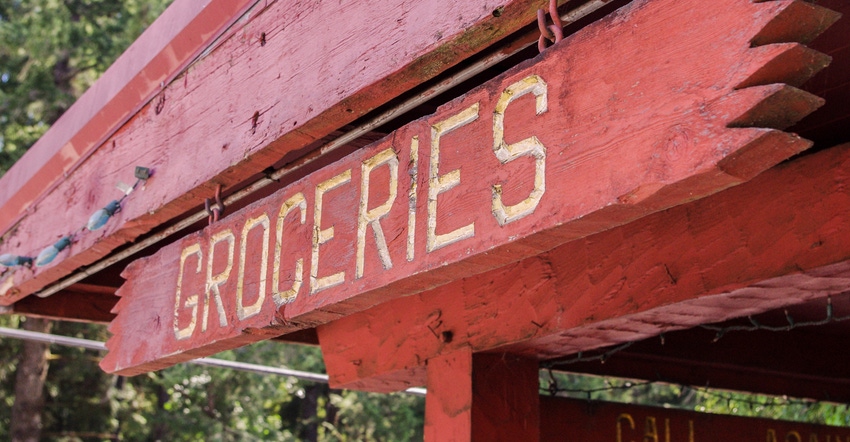
Grocery stores in many ways are lifelines for a community. They can serve as gathering places and provide not only food, but also other essentials to small rural towns.
Many small towns across Nebraska and the country have faced the difficult situation of losing their only rural grocer, making for a “food desert” in the middle of farm country, where residents have to travel miles and miles for affordable food.
The Center for Rural Affairs, based in Lyons, Neb., has been involved in supporting local rural grocery stores and helping communities develop new ways to fill those needs when their grocery store closes.
That’s why we asked Justin Carter, CFRA senior project associate, to offer words of wisdom for supporting a store in a rural community, and what to do if your local grocer closes the doors.
5 tips for supporting current stores
1. Find a successor. “One of the biggest issues for rural groceries right now is that current owners are retiring without successors,” Carter says. “The average age of a Kansas grocer, for instance, is 57 years old. Identifying young folks in the community who would be interested in owning the store and creating early collaboration with the retiring owners can save the store.”
2. Attempt to minimize property costs. “Although rare, some communities have gone as far as purchasing the buildings that house grocery stores and offering discounted rent to the owners,” Carter says. “Lowering this cost can significantly help the bottom line of the owners.”
3. Make the store a community hub. Many successful stores have cafes that serve as a gathering place for community members. “Others have gone as far as hosting monthly events, recipe-tasting workshops, or using parts of the store as a community meeting place,” Carter says. “Rural grocery stores often survive when they play this role rather than just providing food to residents.”
4. If the store is declining, solicit community input. New products? Events? Prices? Hours? “Surveying the community and taking steps to solve these issues can boost sales,” Carter notes.
5. Create broad community support. “Forming a steering committee or councils to brainstorm ways to save the store, or inviting in the opinions of residents, creates more support for stores,” he adds.
4 things to do if the store closes
1. Organize a food council or community committee. This group can lead the development of a new store. “It’s often difficult for individuals to lead efforts to start a new store of their own,” Carter says. “Most success stories come from communities that are able to form groups with broad community input and support.” There are challenges, he says, because not everyone will agree on a solution, but groups can often find reasonable solutions and financial support when they work together.
2. Try to keep the building. “Try to hold onto the building the store was housed in,” Carter advises. “Often, the sales of these buildings can lead to the store being lost forever due to lack of suitable property in rural communities. This could be done through a community investment group or city government itself.”
3. Get input. Soliciting input from the community on what they’d like to see in a new store is important, Carter says. “This is often done through surveys or tabling at community events,” he says. “Leaders can introduce the idea of a new store and gather what residents are looking for. Gathering this early support will help in the long-term success of the store.”
4. Find resources. Communities are not alone in this process. There are plenty of resources available. The Nebraska Cooperative Development Center at the University of Nebraska has successfully aided many communities in starting new stores that use cooperative or collective ownership models, Carter says. “These models often work because the shared ownership minimizes the risk that any one owner might put into a store,” he adds. “They also bring in additional community support and create a shared interest in the store’s success.”
Learn more from CFRA at cfra.org. Another great resource is the Kansas State Rural Grocery Initiative at ruralgrocery.org.
About the Author(s)
You May Also Like






